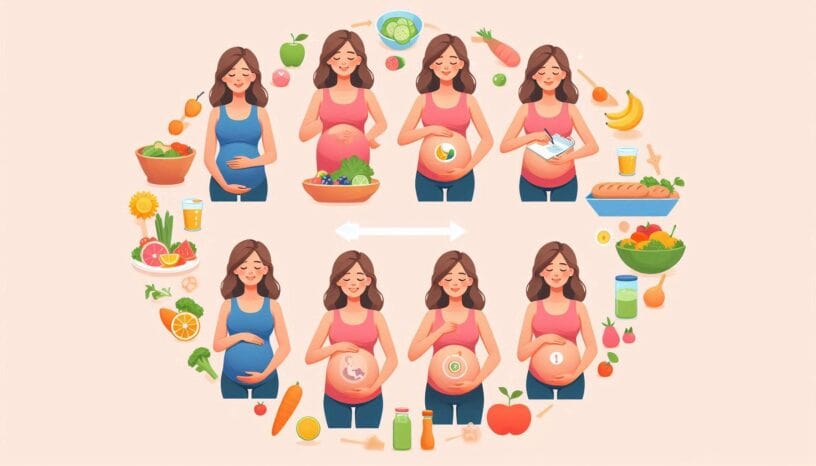1. First Trimester
A month after missing your period, you can take a pregnancy test to confirm whether you’re pregnant. Most women find out about their pregnancy around a month after conception.
The symptoms in the first month can vary widely among individuals. Some may experience nausea, vomiting, menstrual cramps, lower abdominal pain, or fever, while others might not have any symptoms and may just feel typical menstrual discomfort.
Starting in the second month of pregnancy, you may notice a range of new symptoms. Many people experience morning sickness, including nausea, vomiting, acidity, and heartburn. Some may even lose weight due to a decreased appetite, loss of taste, or difficulty eating because of nausea and vomiting. These symptoms can persist into the third month of pregnancy and are considered normal.
If you experience any of these symptoms, it’s advisable to consult a healthcare professional. They can recommend medications for nausea and vomiting, such as multivitamin tablets, syrups, or tonics.
2. Second Trimester
Second trimester is often considered the easiest and most enjoyable. By this time, most of the issues and symptoms from the first trimester have faded. You’ll likely feel better, more energetic, and able to eat well. Expect to gain around 2 kg per month, which might mean it’s time to shop for new clothes, as your old ones may no longer fit. Your baby bump will also become more noticeable during this trimester.
It’s an excellent time for travel, so consider planning a babymoon. Be sure to consult your doctor before making any plans, especially if you have any concerns. By the end of the second trimester, you can also start thinking about your baby shower. Make the most of this trimester—eat, sleep, travel, and enjoy!
3. Third Trimester
The third trimester may bring back some of the symptoms and issues from the first trimester. Many people experience morning sickness, loss of taste, difficulty eating, heartburn, acidity and sleep difficulties. Weight gain tends to accelerate during this period as the baby grows rapidly, which can put pressure on your bladder and affect your comfort. You might also experience leg cramps, swollen feet, body aches, and fatigue.
Traveling is generally not recommended during this trimester. If you must travel, consult your healthcare provider first. Additionally, most airlines do not allow travel after 36 weeks, and you may need a Fit to Fly certificate.
It’s important to take extra precautions during this time. Ensure your diet includes plenty of fluids, protein, fruits, and green vegetables. Consulting a dietitian can be beneficial. Remember to rest adequately, eat smaller meals every couple of hours, and take your medications on time.




Leave a Reply